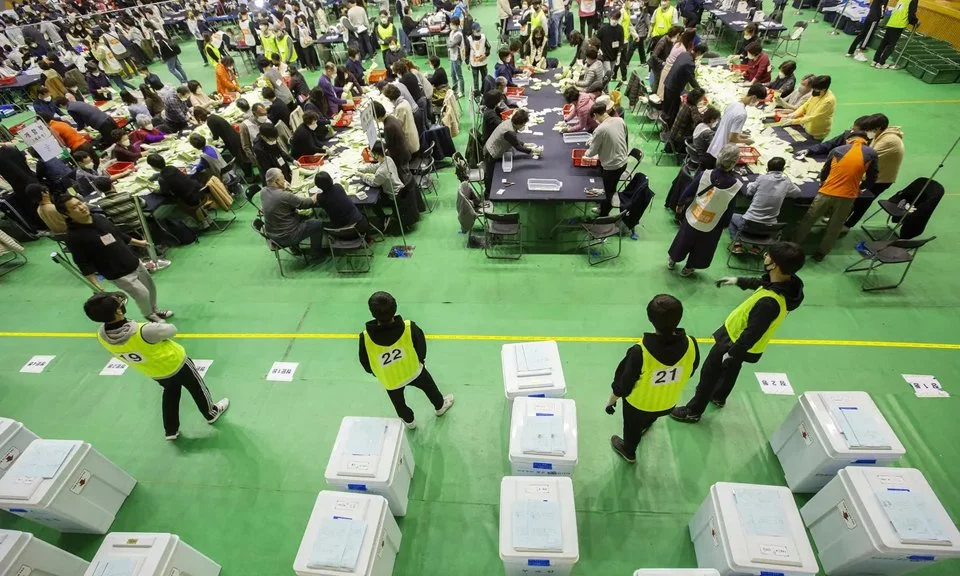SEOUL, June 2 (ABC): South Korea’s ruling party won a landslide victory in local elections for leaders of major cities and provinces, official results showed Thursday, giving newly elected president Yoon Suk-yeol a significant boost.
An avowed anti-feminist and political novice, Yoon won the March presidential election by just 0.7 percent — the narrowest margin ever — and faces an opposition-controlled National Assembly that has vowed to closely scrutinise his policies.
But Yoon’s People Power Party won 12 of the 17 major posts up for grabs in elections held Wednesday for mayors and provincial governors, including the capital Seoul and the country’s second largest city, Busan.
The PPP’s current Seoul mayor, Oh Se-hoon, was re-elected with 59 percent of the vote, while the PPP’s Park Heong-joon was re-elected mayor of Busan with 66.4 percent.
Yoon thanked South Koreans for the “successful completion” of the elections on Thursday.
“I want to accept the results of this election as the will of the people to revive the economy and take better care of the people’s livelihood,” Kang In-sun, Yoon’s spokeswoman, quoted him as saying.
Public sentiment has soured on the opposition Democratic Party’s former president Moon Jae-in and his administration, which have been blamed for soaring housing prices in Seoul — up nearly 120 percent during his time in office.
In parliamentary by-elections, the PPP took five of the seven seats up for grabs in the National Assembly, although the opposition Democratic Party still holds the majority.
The PPP’s Ahn Cheol-soo, who withdrew from the presidential race to support Yoon, secured a seat representing a district in Seongnam, just south of Seoul.
Lee Jae-myung, who was the DP’s presidential candidate, was also elected to parliament representing a district in the port city of Incheon.
Experts said the landslide win gives Yoon the public approval he needs to push his agenda, despite lacking a majority in the parliament.
“The public has ruled against the Democrats, who have massive control within the National Assembly,” Shin Yul, a political science professor at Myongji University told.
“Yoon and his administration will now have more confidence to push forward their policies, despite hitting a roadblock in the parliament, knowing that the public has their back.”
The DP, which took 14 of the mayoral and gubernatorial posts in the last election in 2018, only won five key races this time, including three in its southern stronghold of Jeolla.
The electoral setback comes as the party struggles with internal rifts, prompted largely by rising star and interim chief Park Ji-hyun’s call for reform following its defeat in the presidential election.
It also expelled one of its lawmakers earlier this month over allegations of sexual misconduct.
The DP’s former Seoul mayor Park Won-soon — who was a vocal advocate for women’s rights — took his own life in 2020 after facing an allegation of sexual abuse.
Oh Keo-don, the party’s former mayor of Busan, was also forced to resign for sexually assaulting a female staffer.
“We received our second punishment after the presidential election,” said DP interim chief Park.
“The results were worse than we thought.”

